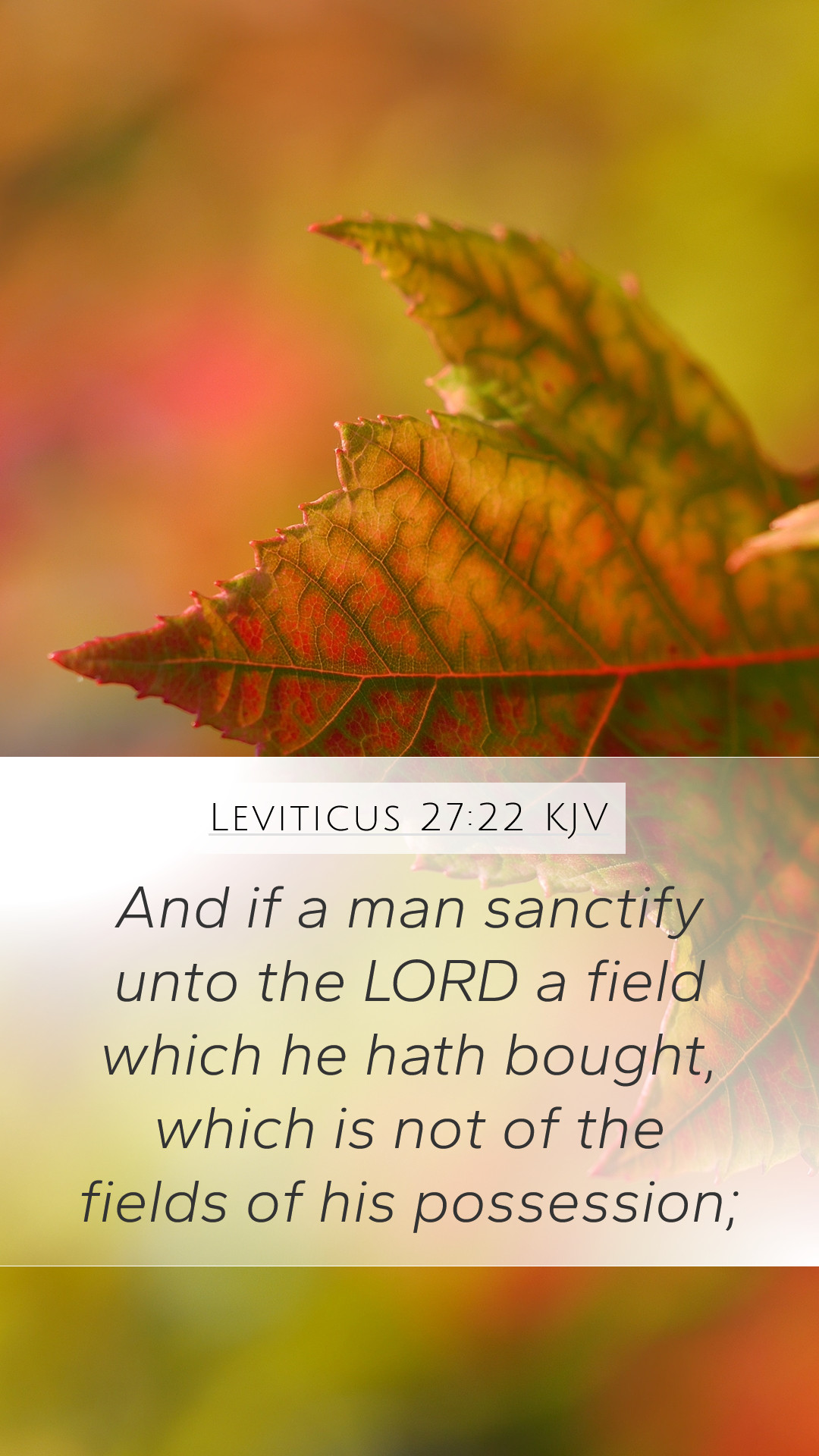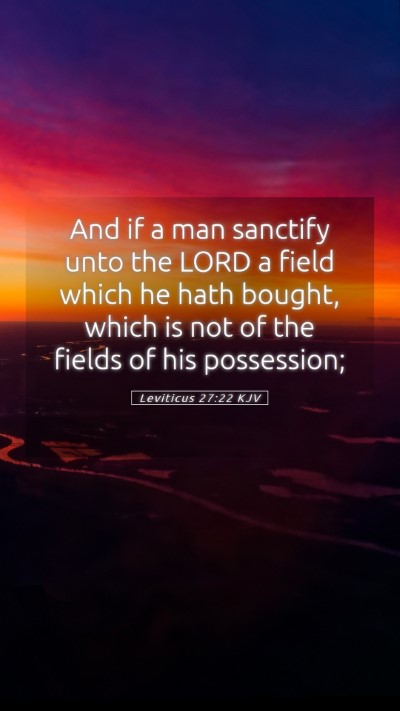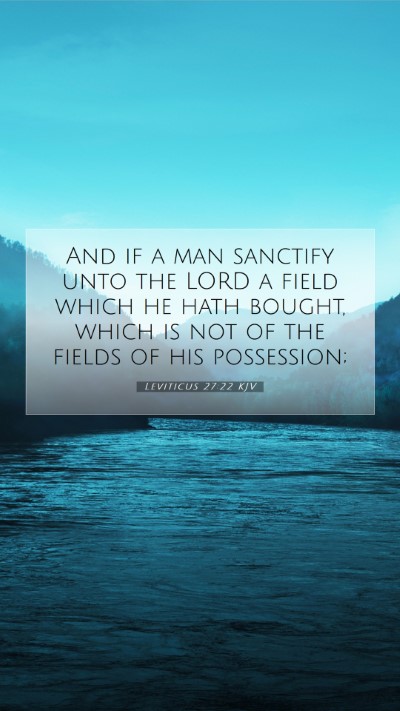Understanding Leviticus 27:22
Bible Verse: Leviticus 27:22
Verse: "And if a man sanctify unto the LORD a field which he hath bought, which is not of the fields of his inheritance;."
Overview of the Verse
This verse falls within a section of Leviticus that discusses valuations of property and offerings to the LORD. When a person buys a field outside of their inheritance, they can sanctify it to the LORD, setting it apart for holy use.
Verse Meaning and Interpretation
In analyzing this verse, various commentaries provide insights that contribute to a comprehensive understanding:
-
Matthew Henry:
Henry emphasizes the significance of setting apart a field as a means of honoring God, showcasing a person’s commitment to the Divine. This act reflects a heart attitude of reverence and a desire to acknowledge God’s sovereignty over possessions.
-
Albert Barnes:
Barnes points out the distinction between inherited land and purchased land, suggesting that while Israelite land was primarily a gift from God, individuals could still make personal offerings that recognize God’s ultimate ownership. Such offerings were treasures laid up before the LORD, furthering community worship and dependency on God.
-
Adam Clarke:
Clarke discusses the implications of purchasing land, noting that this verse implies the possibility of both secular and sacred uses of property. While secular ownership exists, dedicating land to God reinforces the idea that all of life’s resources are to be viewed through a spiritual lens.
Theological Implications
The act of dedicating land to God raises several theological questions regarding stewardship and the disposition of resources. It reinforces the concept that all material possessions ultimately belong to God, and humans act as stewards in their management. This aligns with several Bible verses emphasizing stewardship, such as:
- Psalm 24:1: "The earth is the LORD's, and the fullness thereof."
- 1 Chronicles 29:14: "For all things come of thee, and of thine own have we given thee."
- Luke 16:11: "If therefore ye have not been faithful in the unrighteous mammon, who will commit to your trust the true riches?"
Application in Daily Life
For modern readers, Leviticus 27:22 illustrates the principle of dedicating our possessions to God. This has practical implications for personal finances and property ownership:
- **Dedicating time and resources:** Just as fields can be set apart for God, so too can our time and resources. This verse encourages believers to consider how their assets can glorify God.
- **Community and Worship:** The mindset of dedicating possessions fosters community, as individuals can contribute to communal needs or church missions, aligning with the spirit of worship.
- **Valuation of Spirit over Material:** The emphasis on the intention behind the act rather than the act itself teaches believers to prioritize spiritual wealth over material possessions.
Conclusion
In summary, Leviticus 27:22 reflects a profound principle of stewardship and dedication to God. Through the interpretations provided by leading Bible commentators, we gain insights into the significance of this verse. It serves an essential role in our understanding of property, community, and the worship of God using our earthly resources.
Related Bible Cross References
- Exodus 22:29 - "Thou shalt not delay to offer the first of thy ripe fruits..."
- Deuteronomy 26:2 - "That thou shalt take of the first of all the fruit of the earth..."
- Matthew 6:33 - "But seek ye first the kingdom of God and his righteousness..."
Additional Study Resources
For those interested in further Bible study insights on this topic, consider exploring:
- Bible study groups focused on Old Testament narratives.
- Online Bible study courses that cover the book of Leviticus in context.
- Bible study tools that offer commentaries and analysis on agricultural laws in Scripture.


